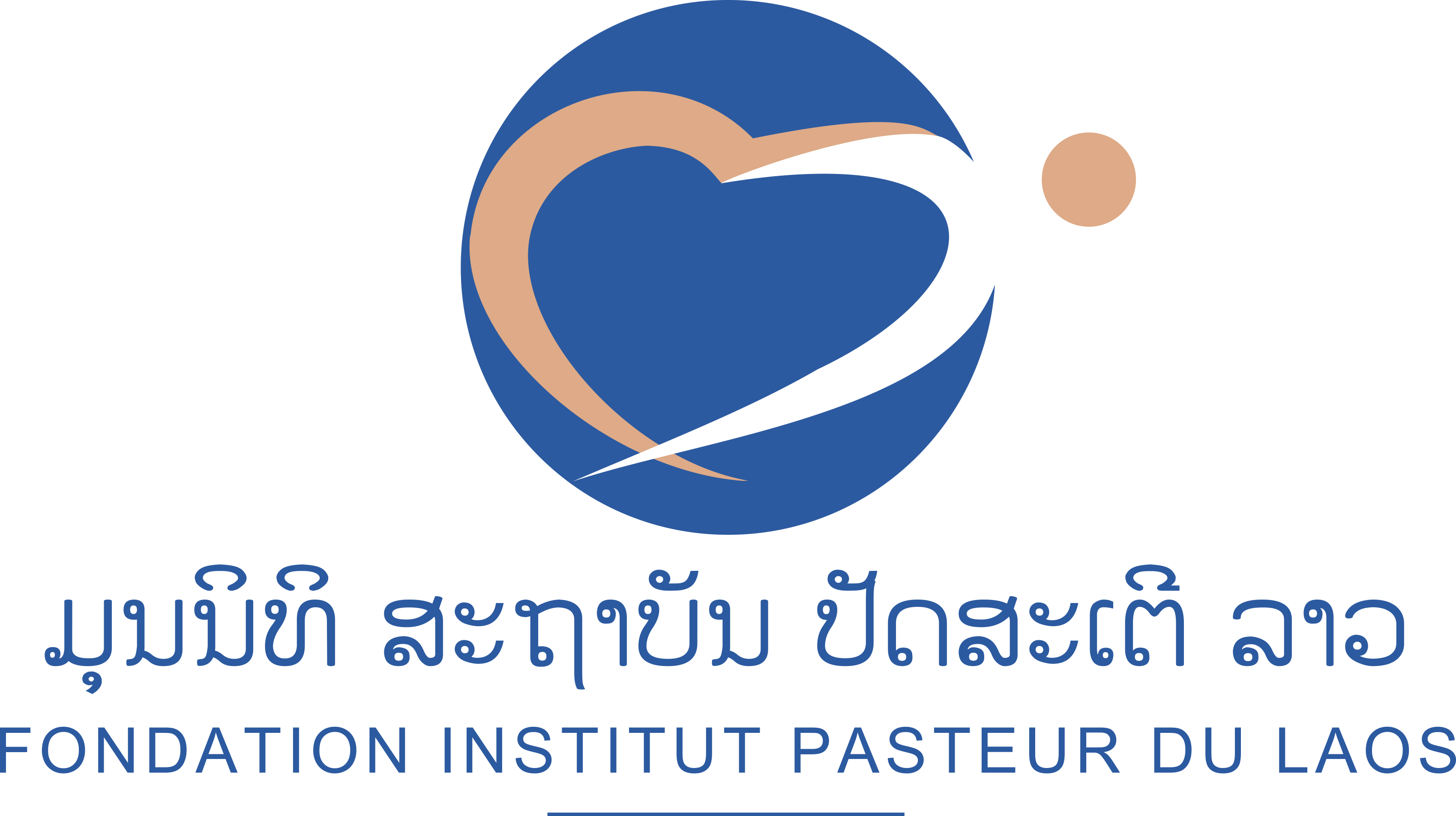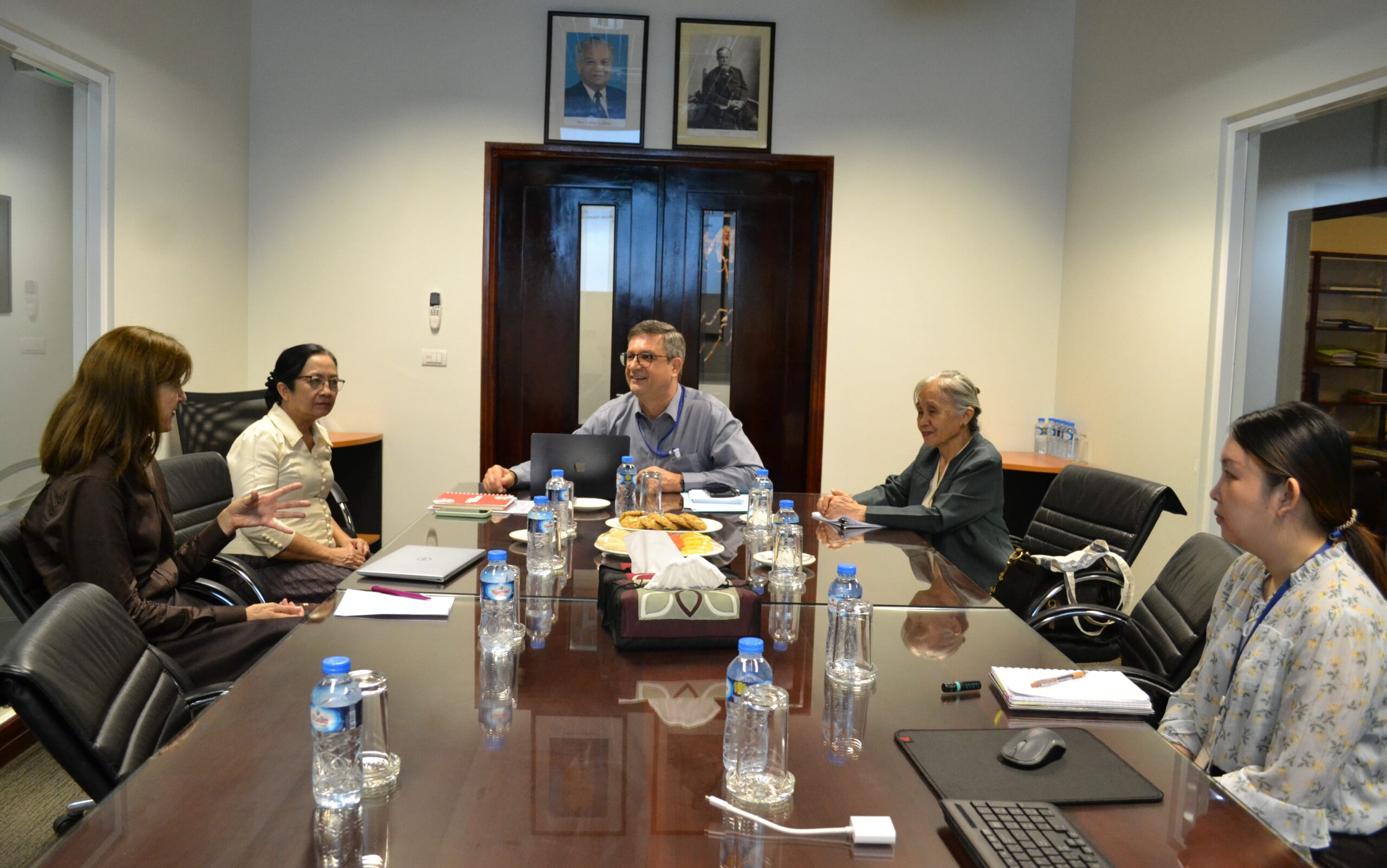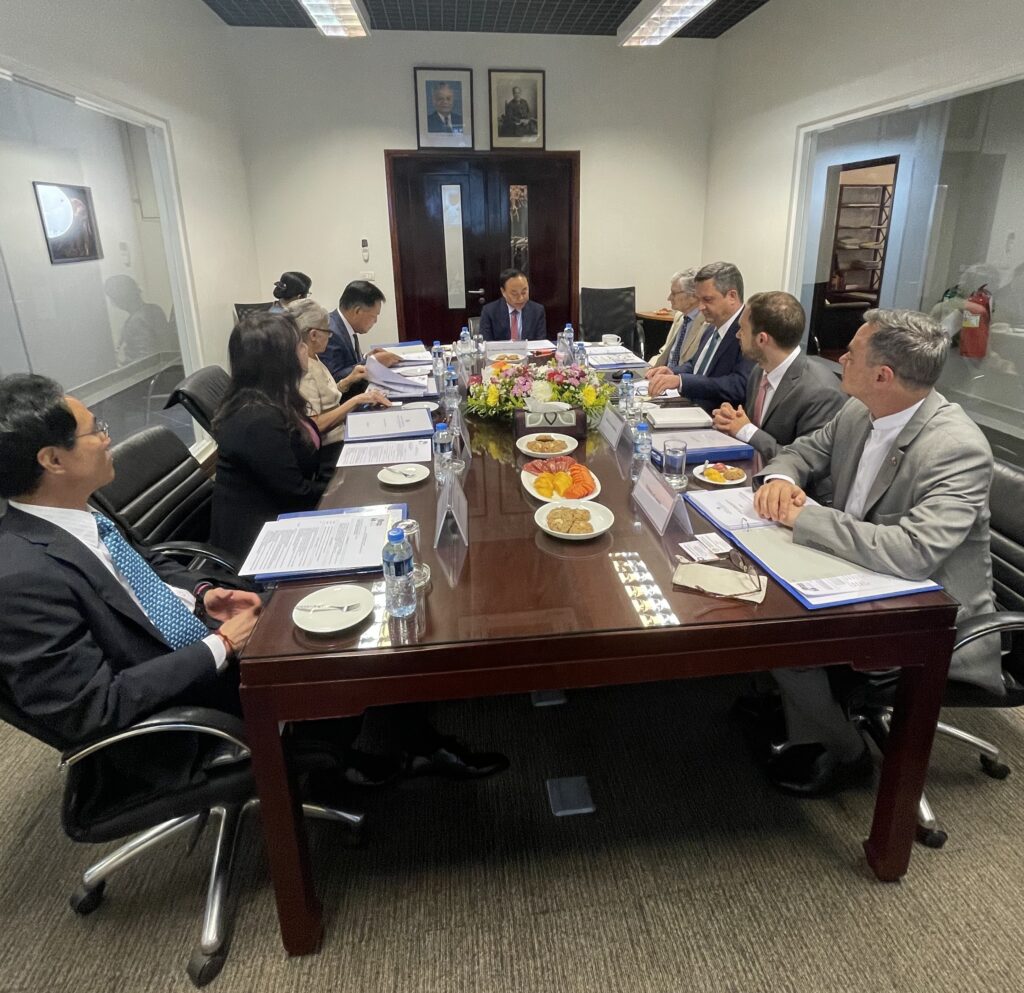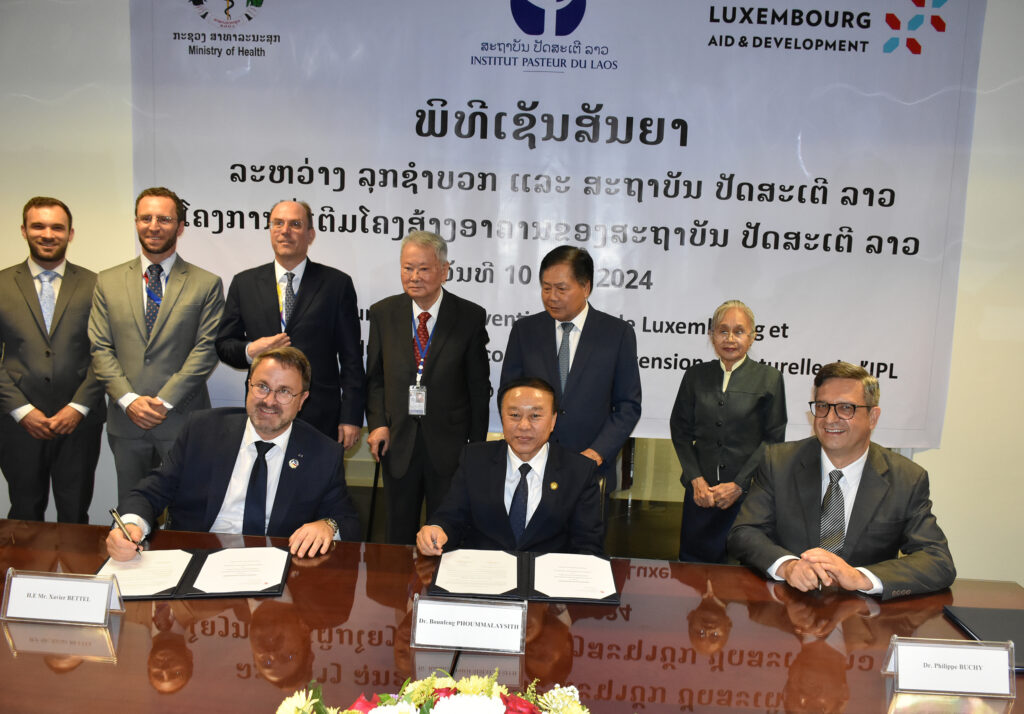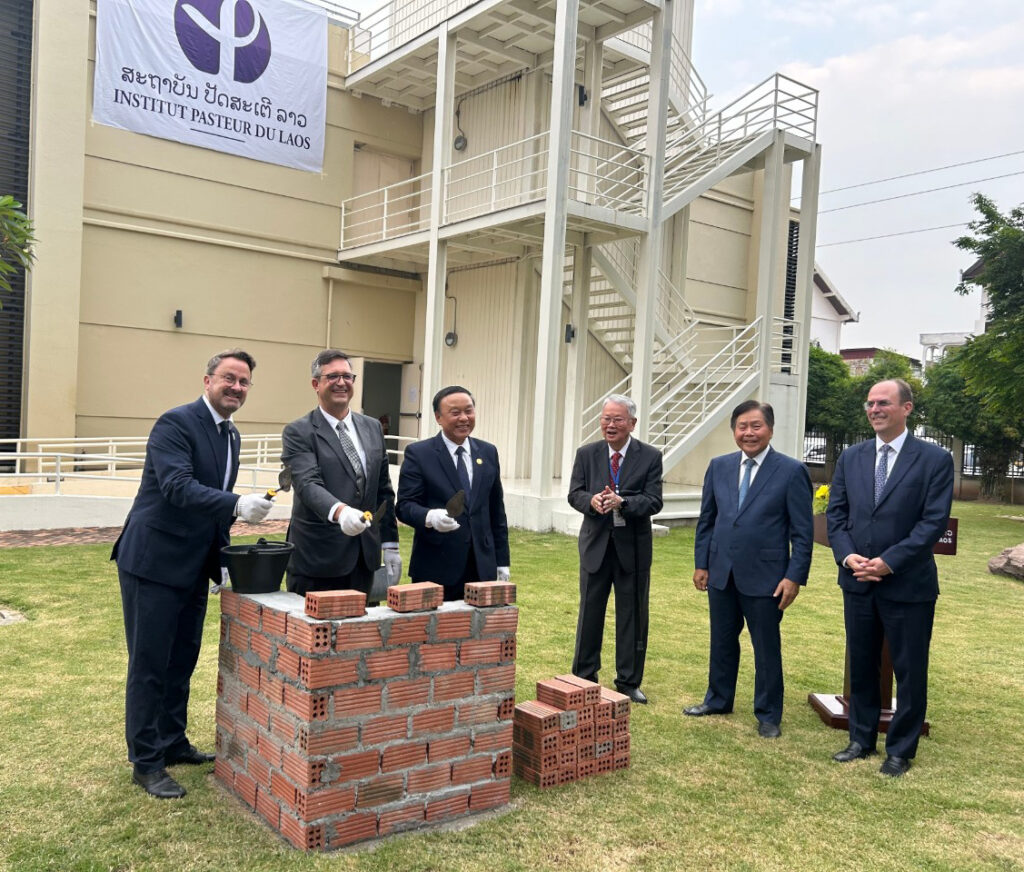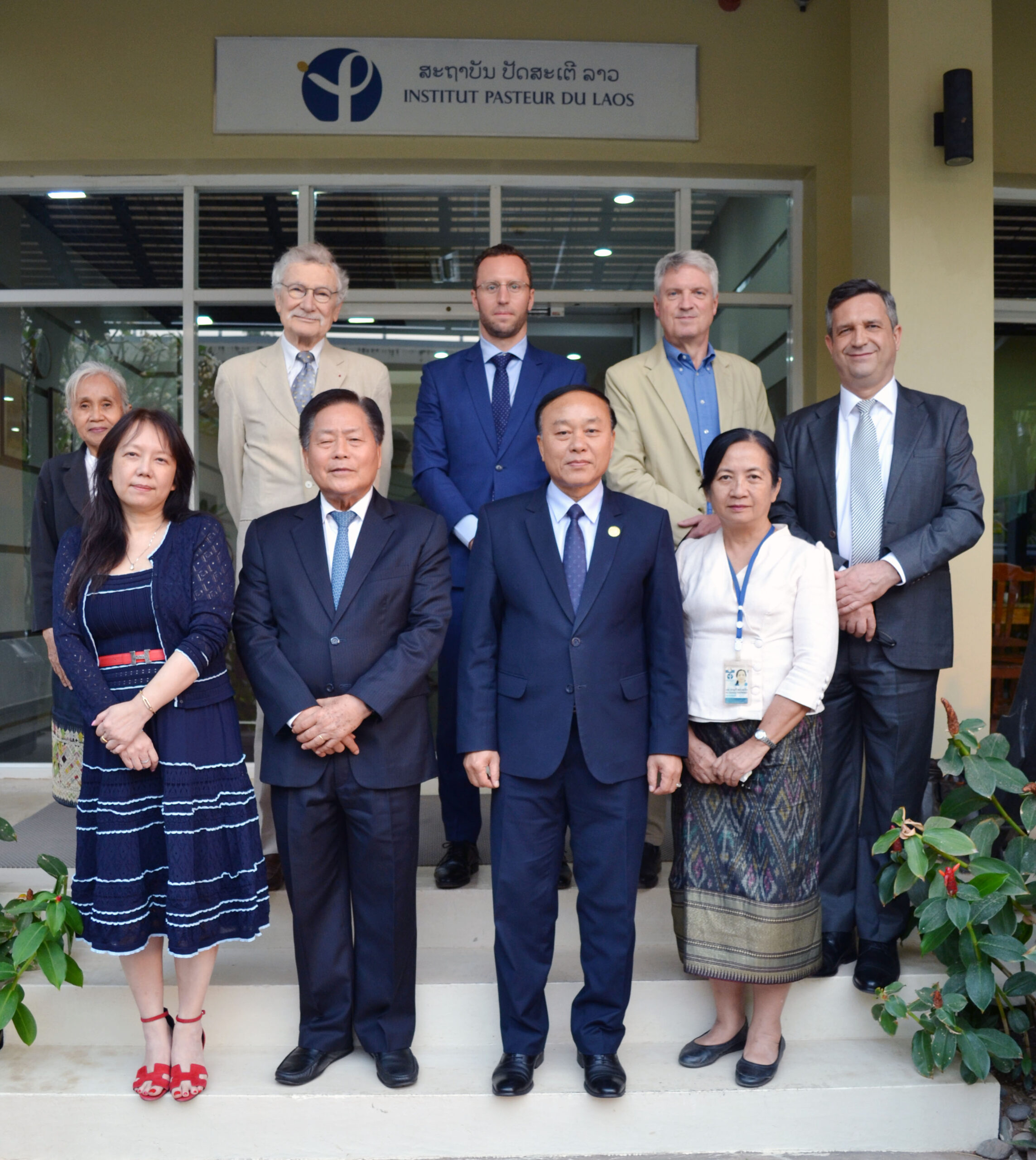Lao – Japan lab / Parasitology 2021
Head of Lab: Shigeyuki KANO, MD, Ph D
Email:
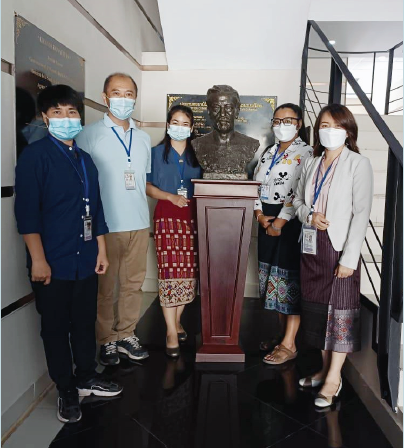 The aims of the Parasitology Laboratory are to carry out research and training in the area of parasitology to better understand parasitic diseases affecting the Lao population and to propose ways to mitigate possible infections and provide technical support to the national-level institutions in the area of malaria and other parasitic diseases.
The aims of the Parasitology Laboratory are to carry out research and training in the area of parasitology to better understand parasitic diseases affecting the Lao population and to propose ways to mitigate possible infections and provide technical support to the national-level institutions in the area of malaria and other parasitic diseases.
Executive summary
The Arboshield project aims to improve the capacity of surveillance, outbreak detection/response and diagnosis/ treatment/prevention of vector-borne diseases, as well as biosafety/security, especially for the Lao Military sector. One role of the Lao-Japan Parasitology lab in this project is to improve malaria surveillance and diagnosis for the military sector, especially in military network hospitals through training and quality assessment. We conducted one year of on-the-job training of military staff in the Institute of Preventative Medicine and 103 hospitals. As a quality assessment, we analyzed blood samples (n=20 in 2021) by malaria rapid diagnostic test (RDT, Malaria Ag P.f/P.v, Standard Diagnostics, Inc., The Republic of Korea) and PCR, collected from malaria-suspected patients in the military hospitals. Only one sample, from 103 hospitals, Vientiane Capital was PCR positive for Plasmodium vivax. A malaria survey among the Lao Military personnel in Savannakhet province showed that only 0.17% (1/593) of the Military personnel were PCR positive for malaria. Surprisingly, 33% (96/289) of the Military personnel believed that malaria infection is caused by drinking dirty water in the forest.
An antimalarial drug therapeutic efficacy study was launched in November 2019 to evaluate drug efficacy by in vitro culture technique and molecular markers at Institut Pasteur du Cambodia (IPC). In this study, IPL, Parasitology Lab is responsible for sample collection and preservation in liquid nitrogen in a collaboration with the Center of Malariology, Parasitology and Entomology (CMPE), the Lao Ministry of Health and the local healthcare facilities. Live Plasmodium falciparum samples were collected from malaria patients who participated in this study in Savannakhet, Salavan, Sekong, Champasak and Attapeu provinces (87 samples were collected from Savannakhet, Salavan and Attapeu provinces, respectively, as of 1st November 2021). Currently, it is impossible to send the frozen P. falciparum samples to IPC because there are no flights between Lao PDR and Cambodia, and the land border is also closed due to the pandemic of COVID-19. This study is financially supported by WHO Western Pacific Regional Office.
We have conducted a “5-aminolevlinic acid (5-ALA) asymptomatic malaria project” since October 2019. 5-ALA is a health food supplement produced by neopharma Japan Co. Ltd and is commercially available in Japan and other countries. Some studies showed that 5-ALA has an efficacy to kill or inhibit Plasmodium growth both in vitro and in vivo. The objective of this project is to evaluate the efficacy to kill or inhibit Plasmodium growth among asymptomatic Plasmodium carriers in malaria high endemic villages in Savannakhet province. Large-scale screening surveys for asymptomatic Plasmodium carriers were conducted in Nong and Sepon districts, Savannakhet province in October-November 2019 (n=2,716), December 2019 (n=1,353) and February 2020 (n=2,260). After malaria PCR analysis, we identified 66 eligible candidates for this study. However, 2 of 66 eligible candidates were not included. The supplement administration was initiated in February (n=40), March (n=4) and June (n=20) 2020. Follow-up of the study participants was finished except Month 14 of group 3. HbA1c data were also recorded. Collected blood samples were sent to National Center for Global Health and Medicine (NCGM), Japan and are being analyzed by PCR. If this supplement is effective for asymptomatic Plasmodium carriers to clear the parasites, this will be an effective tool to eliminate asymptomatic Plasmodium carriers in the endemic areas.
We conducted a performance evaluation of a RT-LAMP kit for SARS-CoV-2 (LoopampTM SARS-CoV-2 Detection Kit, Eiken Chemical, Co., Ltd., Japan) by comparing it with the performance of RT-PCR for SARS-CoV-2. A total of 302 clinical samples were used for this study. 237 samples were collected by IPL while 65 samples were collected by National Center for Laboratory and Epidemiology (NCLE). Sensitivity, specificity, and positive and negative predictive values were calculated using the data of RTPCR as a reference. Sensitivity and specificity of the LAMP test were 93.2% and 99.1%, respectively. Positive and negative predictive values of the LAMP kit were 97.6% and 97.2%, respectively. The sensitivity of the LAMP kit was slightly lower than that of the RT-PCR. However, we found that the LAMP kit is simple and quick, and all the reagents can be stored at refrigerator (2-8oC). Thus, the LAMP kit can be used at a resource limited setting such as small clinics and quarantine centers
Team:
Scientist: Dr. Moritoshi IWAGAMI, PhD, Laboratory Manager Phonepadith KHATTIGNAVONG, MD
Junior Scientists: Dr. Phoyphaylinh PRASAYASITH, MD Dr. Sengdeuane KEOMALAPHET, MD (Fulbright scholarship, Master course at Tulane University, USA, 2021-2023)
Technicians: Pheovaly SOUNDALA Sonesimmaly SANNIKONE Trainees: Phouniloud HONGVANGTHONG (July 2020-Feb 2021) Phoungern XAYYALATH (Aug 2021-Feb 2022)
Project carried on in the lab:
+Arboshield Project
+Antimalarial Drug Therapeutic Efficacy Study
+5-Aminolevlinic acid (5-ALA) Asymptomatic Malaria Project
+SARS-CoV-2 LAMP Study

